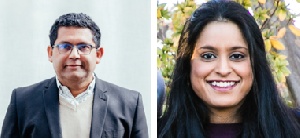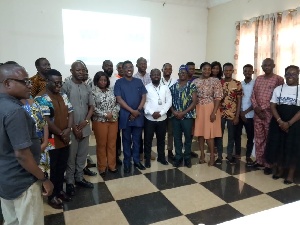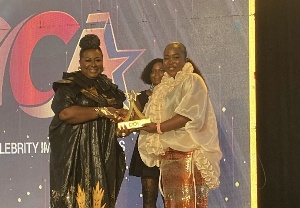Business News of Thursday, 24 April 2025
Source: www.ghanawebbers.com
Why African leadership matters in geoengineering
In Africa, solar radiation management (SRM) efforts could have significant impacts. These initiatives might divert attention and funding from urgent needs. Key priorities include expanding energy access and supporting a just transition.
Policymakers and academics in Africa must guide SRM discussions with clear principles. Transparency and informed decision-making are essential. It's important to address biases, power dynamics, and governance gaps related to SRM.
Currently, SRM research is in its early stages. Most studies focus on modeling and small-scale experiments. The most researched method is stratospheric aerosol injection (SAI). This involves releasing sulfur particles into the upper atmosphere.
Volcanic eruptions serve as a natural example of this process. They can lower temperatures but pose environmental risks. The effects of SAI on precipitation and human health are not well understood.
African leaders should advocate for transparent SRM research and governance. They need to recognize the power imbalance between funders and researchers. This gap will widen if governments do not engage with private-sector developments in SRM.
Without understanding the technology's implications, public authorities may struggle to set rules for testing it. Climate-vulnerable countries could be sidelined, facing adverse consequences.
This issue has been ongoing for two decades. Global North actors dominate the SRM field, both supporters and critics alike. Efforts to involve Global South countries are encouraging but insufficient.
To improve engagement, knowledge-sharing is vital instead of predetermined outcomes. Global South nations should lead responsible SRM governance while prioritizing mitigation and adaptation in climate policy.
African governments face challenges balancing climate investment with economic development. Many are trapped in debt distress while trying to restore fiscal stability.
A major concern is that questions about SRM outweigh answers about its consequences. There’s uncertainty whether its effects will be beneficial or harmful overall.
Additionally, resources may shift away from investments that promote long-term growth. Dialogues by the African Climate Foundation highlighted these concerns about inequality and climate action.
Meetings emphasized better information-sharing among African governments, civil society, and academia regarding SRM technologies. Many leaders lack sufficient knowledge about these issues.
Developing effective climate strategies requires deep understanding of various topics like renewables and controversial technologies such as SRM. Multistakeholder dialogue is crucial for any geoengineering strategy's success.
Instead of simply debating SRM's merits or drawbacks, efforts should gather diverse perspectives locally. Increasing transparency around potential risks is essential since no single technology can solve all problems.
While immediate concerns may overshadow SRM discussions, African policymakers must prepare for this evolving field. The design and governance of SRM will significantly influence its impact across the continent.
As global warming accelerates, engaging with SRM at all levels becomes crucial for creating an inclusive solar-geoengineering ecosystem in Africa.
Saliem Fakir is the Founder and Executive Director of the African Climate Foundation.
Shuchi Talati is the Founder and Executive Director of the Alliance for Just Deliberation on Solar Geoengineering.











